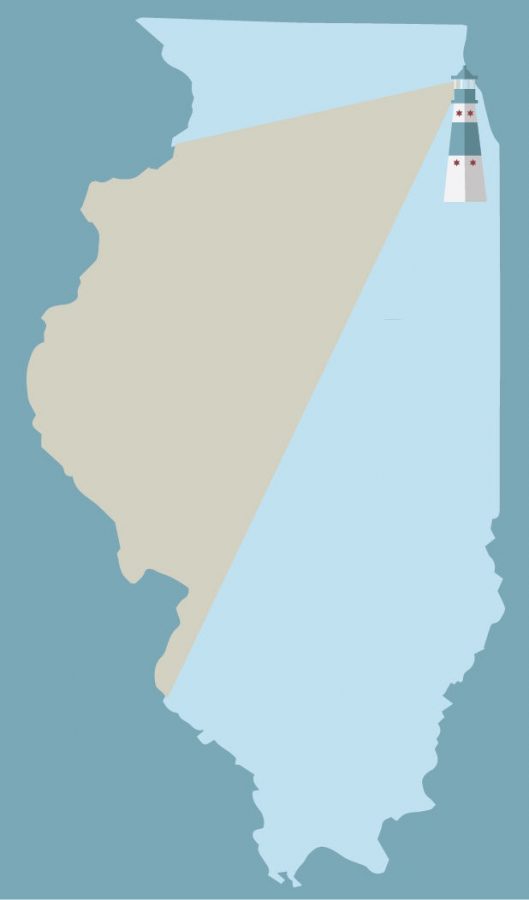Trust Act aims to make Illinois a ‘sanctuary state’
September 11, 2017
The federal government’s recent announcement that it is terminating the Deferred Action on Childhood Arrivals program is a significant deviation from efforts at the Illinois state and local levels to protect immigrants’ constitutional and civil rights.
Gov. Bruce Rauner signed the Trust Act, Senate Bill 31, into law Aug. 28. Introduced Jan. 11 by state Sen. John Cullerton, D-Chicago, the act states law enforcement cannot stop, arrest, search, detain or continue to detain a person solely because of their immigration status, according to state legislative records. Instead, detainment will require a warrant issued by a judge.
“The reason why [the bill] is called the Trust Act is because we want undocumented [immigrants] who live among us and contribute to our economy [to] trust their own law enforcement and sheriffs,” Cullerton told The Chronicle. “If they witness a crime, they can feel comfortable in reporting that to the police.”
Cullerton said the bill evolved from his work with the Illinois Child Passenger Protection Act and he realized that undocumented immigrants could not get driver’s licenses. Because immigration violations are a federal offense, Cullerton said local law enforcement should not be encouraged by Immigration and Customs Enforcement to target undocumented immigrants.
However, immediately after Rauner signed the Trust Act, six Illinois Republicans filed a bill to repeal it, House Bill 4091. Cullerton said “people are coming around” to the Trust Act, and are sympathetic and supportive.
The legislatation is similar to Chicago’s Welcoming City ordinance, which cements Chicago’s sanctuary city status by guaranteeing all residents, regardless of citizenship, can safely cooperate with local law enforcement.
Mayor Rahm Emanuel filed a federal lawsuit Aug. 7 against President Donald Trump’s Justice Department, according to an Aug. 6 press release. The lawsuit argues against Attorney General Jeff Sessions addition of requirements to the Edward Byrne Memorial Justice Assistance Grant program, which provides states and cities with federal funding to support local law enforcement.
In the lawsuit, Emanuel contends these new conditions violate the Fourth Amendment and Chicago’s status as a sanctuary city, which does not require or store extensive information from undocumented immigrants, according to Emanuel.
Following Trump’s inauguration, Julián Lazalde, civic engagement manager at the Latino Policy Forum, said his organization saw a decline in people attending counseling and legal services for undocumented immigrants.
“There was a real concern [with people] that stepping outside my house could land me in a world of trouble,” he said.
There were 19,000 fewer calls to 911 in 2017’s first quarter than in 2016’s, a significant decrease that did not reflect Chicago’s high crime rates, according to the Chicago Tribune. Lazalde said he does not think it is a coincidence that this decrease in 911 calls was seen in neighborhoods like Little Village with large populations of undocumented Latino immigrants.
“How do we bridge that gap between communities that are afraid of anybody wearing any sort of a badge?” Lazalde asked. “We have a president now who has been very public about saying ‘Hey, law enforcement, I want all of you to go after undocumented immigrants.’”
Daniel Morales, a law professor at DePaul University, said it is critical for the mayor to signal in a concrete way that he has immigrants’ backs because of their importance to the city.
“Immigration to Chicago has declined over time,” Morales said. “Chicago relies on immigrants to boost its population and we’ve been losing population. It’s really vital to the future of the city that immigration should continue to be liberal.”








